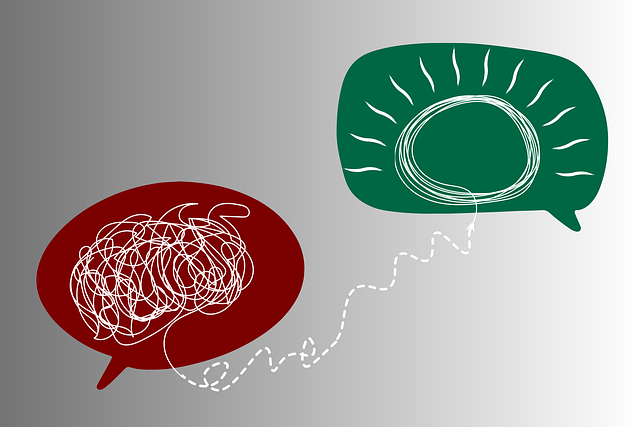Mental wellness is key to overall health, with chronic stress and anxiety linked to physical ailments. Organizations like Littleton Cancer Issues Therapy offer support through therapy, coaching, and workshops, promoting resilience and healthier lifestyles. Journaling, a powerful therapeutic tool for cancer patients in Littleton, aids emotional processing, perspective gaining, and positive thinking. Expressive writing, proven beneficial for cancer challenges, helps process emotions, reduce stress, and manage moods. Incorporating Littleton Cancer Issues Therapy principles into journaling can significantly enhance mental wellness during difficult times, offering a safe space for self-reflection and emotional healing.
Mental wellness journaling can be a powerful tool for cancer patients, offering therapeutic benefits that extend beyond traditional therapy. By expressing thoughts and emotions through writing, individuals facing cancer can process their experiences, gain perspective, and cultivate resilience. This article explores the impact of mental wellness on overall health, delves into the therapeutic effects of journaling for cancer patients, highlights the advantages of expressive writing in overcoming challenges, provides a step-by-step guide to creating your own journal, and offers guidance on incorporating specific Littleton Cancer Issues into your journaling practice.
- Understanding Mental Wellness and Its Impact
- Journaling as a Therapeutic Tool for Cancer Patients
- The Benefits of Expressive Writing in Overcoming Cancer Challenges
- Creating Your Journal: A Step-by-Step Guide
- Incorporating Littleton Cancer Issues into Your Journaling Practice
Understanding Mental Wellness and Its Impact

Mental wellness is a crucial aspect of overall health, encompassing our emotional, psychological, and social well-being. It influences how we think, feel, and act in various aspects of life, including our interactions with others, productivity at work or school, and ability to cope with challenges. Unfortunately, mental health issues are prevalent, affecting millions worldwide, often in silent suffering due to stigma. In light of this, understanding the impact of mental wellness is essential, especially considering its profound effect on daily functioning and overall quality of life.
The connection between mental wellness and physical health is well-documented, with chronic stress and anxiety linked to various health problems, including cardiovascular disease and weakened immune systems. This is where resources like Littleton Cancer Issues Therapy, Trauma Support Services, and Mental Wellness Coaching Programs Development play a vital role in providing much-needed support. By focusing on stress management, these initiatives aim to empower individuals to navigate their mental wellness journeys effectively, fostering resilience and promoting a healthier, more balanced lifestyle.
Journaling as a Therapeutic Tool for Cancer Patients

Journaling has emerged as a powerful therapeutic tool for cancer patients navigating Littleton’s complex cancer issues. By putting thoughts and feelings into words, individuals can process their emotions, gain perspective, and cultivate positive thinking. This practice is particularly beneficial during challenging times, offering a safe space to express fears, frustrations, and hopes without judgment.
Incorporating compassion cultivation practices into journaling routines can further enhance the therapeutic effect. Writing self-compassionate messages, reflecting on personal strengths, and acknowledging acts of kindness can promote emotional healing and reduce symptoms of anxiety relief. Journaling provides a chance to pause, reflect, and reconnect with oneself, fostering resilience and a sense of agency during cancer treatment.
The Benefits of Expressive Writing in Overcoming Cancer Challenges

Expressive writing has emerged as a powerful tool for individuals navigating cancer challenges. Studies have shown that putting thoughts and emotions into words can significantly improve mental wellness. For those in Littleton, cancer issues therapy often includes expressive writing exercises designed to help patients process their feelings, reduce stress, and enhance mood management. This therapeutic practice allows individuals to confront and overcome the emotional turmoil associated with a cancer diagnosis, treatment, and recovery.
The benefits of expressive writing extend beyond simply putting pen to paper. Regular written reflection can aid in better sleep quality, improved immune function, and enhanced coping skills. Moreover, participating in community outreach program implementations like Stress Management Workshops Organization can provide additional support for mental wellness. These workshops often incorporate expressive writing as a means to foster a sense of connection, encourage resilience, and promote overall well-being among participants facing cancer challenges.
Creating Your Journal: A Step-by-Step Guide

Starting a journaling practice can be incredibly beneficial for your mental health and emotional well-being, especially when navigating challenging times like those presented by cancer issues. Here’s a step-by-step guide to help you create a space for reflection and self-care, inspired by the principles of Littleton Cancer Issues Therapy.
1. Choose Your Journal: Select a notebook that feels right for you – it could be leather-bound or a simple spiral notebook. Consider its size, whether you prefer lined paper or unlined, and where you’ll keep it to ensure accessibility.
2. Set Clear Intentions: Before beginning each entry, take a moment to set an intention. This might be to track your mood, explore gratitude, or focus on specific aspects of your mental health like anxiety or sleep patterns. Setting an intention sets the tone for your writing and helps in achieving better clarity.
3. Reflect on Your Day: Begin by jotting down key moments from your day. What challenges did you face? What brought you joy? This practice, often referred to as ‘mindful reflection’, is a powerful emotional well-being promotion technique that allows you to process experiences and identify patterns.
4. Explore Your Emotions: Dedicate space for uncensored expression of your feelings. Cancer issues can significantly impact mental health awareness, so journaling provides a safe outlet for acknowledging and understanding these emotions. Write freely about how you feel, using as much detail or minimal words as needed.
5. Write Affirmations: End each entry with positive affirmations tailored to boost confidence. These could be statements like “I am strong and capable,” or “My feelings are valid.” Repeating them regularly can help reframe your perspective, promoting mental health awareness and resilience.
Incorporating Littleton Cancer Issues into Your Journaling Practice

Incorporating Littleton Cancer Issues into your journaling practice can be a powerful tool for processing and managing emotions related to cancer and its impact on mental wellness. Journaling allows individuals to explore their thoughts, fears, and hopes in a safe and private space, which is particularly beneficial for those navigating complex feelings associated with cancer. By integrating insights from Littleton Cancer Issues Therapy, you can create a personalized approach to self-reflection.
This practice involves delving into your experiences, whether it’s expressing gratitude for support systems or documenting challenges faced during treatment. Reflecting on these aspects through journaling can enhance emotional awareness and foster resilience. Additionally, considering the role of social skills training and public awareness campaigns development in cancer care can enrich your journaling content. Healthcare Provider Cultural Competency Training is another aspect worth exploring, as it promotes understanding and appreciation for diverse perspectives, ultimately contributing to a more inclusive and supportive mental wellness journey.
Mental wellness journaling offers a powerful and accessible path towards healing and self-discovery, especially for those navigating cancer. By incorporating expressive writing and reflecting on personal experiences, individuals can tap into therapeutic benefits that enhance their mental resilience. The steps outlined in this guide empower folks to create meaningful journals tailored to their unique journeys, fostering a deeper understanding of themselves and the challenges they face, be it physical or emotional. For those specifically dealing with Littleton Cancer Issues, integrating these practices into daily life can provide a sense of agency and promote overall well-being.














